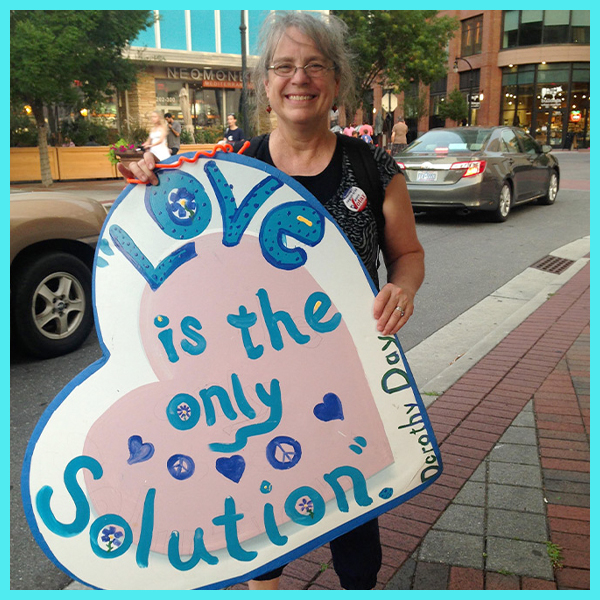Four years ago, Sebastian was diagnosed with cardiac amyloidosis, a chronic condition. They moved to Durham so he could be treated at Duke University, and so they could be closer to their children, who are both high school teachers in Durham, and their grandchildren.
Grace just completed her second associate degree at Durham Technical Community College, where she received numerous awards. When it was time to transfer to a university, she had her choice of a number of top schools.
She found herself drawn to Carolina, she said, “because the staff were exceptionally engaging, affirming, and exceedingly helpful in all interactions.”
She said that Carolina has the vital combination of professional knowledge and skills with personal interest and connection. She is excited about using the interdisciplinary studies major to craft her own education, as she’s done for so long.
“I plan to create my own major around studying trauma and resilience, with a likely minor in conflict resolution. Because of what I’ve seen across the world, and what I know now about science and health, I’m really interested in adverse childhood experiences and how they affect the body itself – the ability to think and learn and heal. I need to study more and use what I learn to continue to be more helpful to my community. We experience what I see as very stressful times in our world, and healing connections with each other are key. “
Grace will start this fall with Carolina Away, a program for first-year and transfer students that will allow her to take her courses online and participate in small-group experiences with classmates, faculty, and staff.
Over the summer, she’s kept her eye on the kinds of opportunities Carolina is offering for students and alumni to engage in discourse around racism, equality, the Black Lives Matter movement, and other issues of justice for which she’s been working her whole life.
“I’m looking forward to being part of these kinds of engagements with other students. I’m well-rooted in this work, but to see this being offered to young people at such pivotal points in their lives is heartening,” she said. “I’m profoundly excited to be in a place where I can witness young people engaging in this way. Working for good – that’s where we have to put our hope.”
Story courtesy of UNC.edu.

